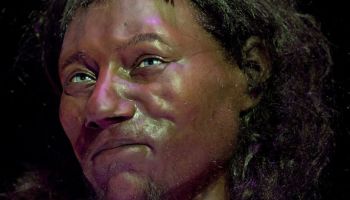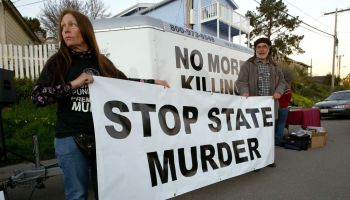Labor and civil rights activist A. Philip Randolph made a number of notable contributions in regards to equal rights for Black Americans. Not only did Randolph strive to organize African-American laborers, he was also a prominent leader of the 1963 March On Washington event. On this day, the Florida native was born. Here, NewsOne takes a look back at the life and legacy of A. Philip Randolph.
Born Asa Philip Randolph in Crescent City in the Sunshine State, he was the second son of Rev. James William Randolph and Elizabeth Robinson Randolph. The family embraced the concept of having sound character and strong values. Rev. Randolph, an AME minister, and Mrs. Randolph taught their children to be educated and also how to defend themselves from anyone looking to harm the family.
The Randolph family moved to Jacksonville, and were active in the community when it came to the rights of Black citizens. Randolph and his brother were capable students and excelled at the Cookman Institute (now Bethune-Cookman University). After graduating, Randolph struggled to find work in the deeply segregated South. With a love for singing and acting, Randolph would uproot himself and head to New York in 1911. He took classes at City College (CUNY), with a focus on English Literature and sociology.
In 1912, he would enact one of his first political demonstrations by co-founding an employment agency called the “Brotherhood of Labor” alongside Columbia University law student Chandler Owen. They began the group after realizing they shared similar socialist views and sought to mobilize Black workers.
Randolph married Harvard graduate Lucille Green (pictured at right) in 1913, then opened the Shakespearean Society in Harlem and was featured in several productions. In 1917, during World War I, Randolph and Own would work together once more to create political magazine “The Messenger,” which aimed its efforts in promoting fair wages for African Americans and championing on their behalf to be included in the war industry and workforce.
After the war ended, Randolph became more involved with the Socialist Party and labor movement, lecturing at the Rand School of Social Science on occasion. In 1925, he formed the labor group Brotherhood of Sleeping Car Porters (BSCP) and sought to have them included in the American Federation of Labor (AFL), an organization that denied Black laborers entry in to their group. With a tireless bent, Randolph successfully got the BSCP included in the AFL in 1937, making it the first African-American union group.
SEE ALSO:
Expert: Black Unemployment Compounded By White Favoritism During Hiring
REPORT: NewsOne Breaks Down President’s Plans For Black Community In Second Term
The victory was bittersweet, though, as Black laborers and unions still faced heavy discrimination from racists, so Randolph withdrew his union and began to speak out against racism during the early stages of World War II. Threatening a march on Washington to highlight the discriminatory practices of the war industry, President Franklin D. Roosevelt issued an executive order that banned racial discrimination of government defense factories and established the first Fair Employment Practices Committee.
Randolph’s efforts continued after the conclusion of World War II; he organized the League for Nonviolent Civil Disobedience Against Military Segregation. The group was responsible for inspiring President Harry S. Truman to pass a 1948 executive order banning racial segregation in the U.S. Armed Forces.
In the 1950s, Randolph began to involve himself in the Civil Rights Movement, organizing prayer vigils and marches to highlight the injustices in the South, especially school integration. In 1963, he was one of the chief organizers of the famous March on Washington for Jobs and Freedom, sharing the microphone with Dr. Martin Luther King, Jr. who delivered the iconic “I Have A Dream” speech.
In 1964, Randolph was awarded the Presidential Medal of Freedom by President Lyndon B. Johnson for his efforts at the March and other related causes. Later he would founded the A. Philip Randolph Institute, an organization aimed at studying the causes of poverty. In 1966, he presented an economic and poverty elimination plan known as the “Freedom Budget.”
After 40 years as the president of the Brotherhood of Sleeping Car Porters, Randolph stepped down in 1968 and retired from public work. He moved to the Chelsea section of Manhattan and worked on his autobiography until his passing in 1979.
A. Philip Randolph was dedicated to the idea of working class individuals gaining the same access and rights that rich and powerful persons enjoyed. His devotion to the excellence and opportunity for African Americans became his hallmark, and his efforts live on to this day via labor unions, voting rights activists, and more.
Happy Birthday and Rest In Powerful Peace, A. Philip Randolph!
SEE ALSO: Nat King Cole Assaulted Onstage By White Supremacists In 1956
















